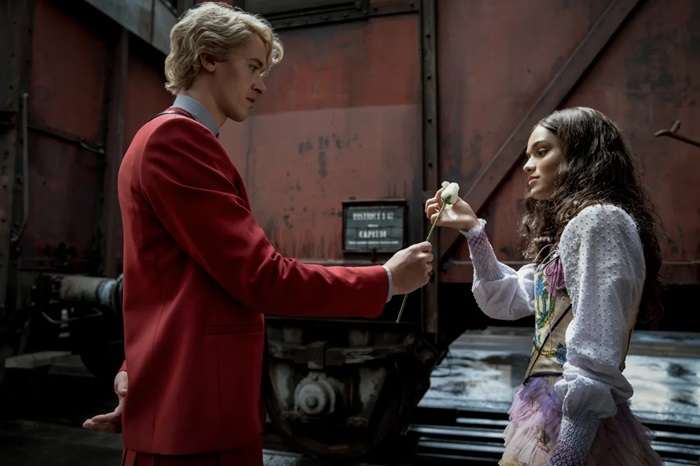In The Hunger Games series, President Coriolanus Snow stands as one of the most complex and calculating villains in modern dystopian fiction. His presence in both Suzanne Collins’ original trilogy and its prequel, The Ballad of Songbirds and Snakes, shapes the politics, violence, and psychology of Panem. Snow’s iron-fisted rule, concealed behind a façade of elegance and civility, makes him the perfect symbol of oppressive power. This article will explore President Snow’s rise to power, his intricate relationship with the districts, his calculated cruelty, and the psychological complexities that make him a fascinating antagonist.
Early Life and Background of President Snow

To fully understand President Snow, it’s essential to look at his early life, which is detailed in The Ballad of Songbirds and Snakes. This prequel novel offers valuable insight into how Coriolanus Snow became the infamous tyrant seen in the original trilogy.
A Young Coriolanus: Privileged Yet Vulnerable
Born into a wealthy, aristocratic family, Snow was privileged from birth. His family, once prosperous and influential, fell on hard times after the collapse of Panem’s economy following the first rebellion. However, despite his family’s diminishing wealth, young Coriolanus clung to the social advantages his name brought him. His experiences in his youth, marked by the struggle to maintain appearances while facing poverty, planted the seeds of his ambition and desire for control.
Hunger Games Mentor: The Catalyst for Cruelty
As a young man, Coriolanus served as a mentor in the 10th Hunger Games, where he was assigned to Lucy Gray Baird, a tribute from District 12. His relationship with Lucy Gray is complex and revealing. Initially, Snow’s intentions seem almost noble—he seeks to elevate Lucy Gray, both as a contestant in the Games and as a potential love interest. However, as the narrative unfolds, it becomes clear that Snow is primarily concerned with his own ascent to power. His decisions during the 10th Hunger Games foreshadow his later ruthlessness as a ruler.
By the end of The Ballad of Songbirds and Snakes, Snow’s transformation is nearly complete. He has learned that power is not something given but something seized, often at the expense of others. This period of his life shapes his future tactics as the authoritarian leader of Panem.
The Hunger Games: Snow’s Tool for Oppression
In the original Hunger Games trilogy, President Snow uses the Hunger Games as a critical tool to maintain control over the districts and suppress any thoughts of rebellion. The Games, a televised fight to the death between children from each district, serve as a constant reminder of the Capitol’s absolute power.
The Symbolism of the Hunger Games
The Hunger Games are more than just a form of entertainment for the Capitol’s elite. They symbolize the Capitol’s dominance over the districts, reminding citizens of the failed rebellion 74 years prior. For Snow, the Games are an essential mechanism of control. They keep the districts divided, prevent unity, and promote fear. Snow understands that fear is the most effective way to rule, and he uses the Games to cultivate that fear.
The Games are a spectacle of violence, but they are also a psychological tool, reinforcing the Capitol’s message that rebellion is futile. By forcing the districts to sacrifice their children in a brutal contest, Snow ensures that hope remains scarce, and despair thrives.
Manipulating the Tributes: Snow’s Psychological Warfare
President Snow’s manipulation extends beyond the Games themselves. His treatment of the victors is another method of psychological control. He forces some victors, like Finnick Odair, into prostitution, while others, like Johanna Mason, face psychological torment. Katniss Everdeen, the protagonist of the series, becomes a particular target for Snow’s manipulations after her unexpected victory in the 74th Hunger Games.
Snow understands that Katniss represents something dangerous: hope. Her defiance during the Games—refusing to kill Peeta Mellark and instead threatening a double suicide—sends a ripple of rebellion through the districts. Snow sees Katniss as a potential spark for revolution, and his attempts to control her become a central theme in Catching Fire and Mockingjay.
The Facade of Elegance: Snow’s Public Image
Despite his ruthless nature, President Snow maintains a carefully crafted public image. He presents himself as a calm, rational leader, always appearing composed and well-spoken. His white rose, a symbol of his authority and personal branding, is ever-present. However, beneath this polished exterior lies a man driven by paranoia, cruelty, and a desire for absolute control.
The White Roses: A Mask for Evil
One of Snow’s most defining traits is his love for white roses. He is almost always seen wearing one, and they are often present during his public appearances. The white rose serves as a metaphor for Snow’s leadership—it is beautiful and pristine on the surface, yet it hides a sinister reality. In Mockingjay, Katniss learns that Snow uses the roses to mask the smell of blood caused by sores in his mouth, a result of poisoning his enemies. This revelation highlights the duality of Snow’s character: outwardly charming, but deadly underneath.
The roses also serve a more personal role in Snow’s psychological warfare. He uses them to taunt Katniss, sending her white roses after Peeta is captured by the Capitol. These roses are a chilling reminder of Snow’s power and his intention to destroy her psychologically.
Public Appearances: A Calculated Act
Snow’s public appearances are carefully orchestrated to present him as a reasonable and even benevolent leader. He often speaks of the Capitol’s role in maintaining peace and order, framing the Hunger Games as a necessary evil to prevent chaos. Snow is always calm and deliberate in his speeches, never revealing the true extent of his cruelty.
This public facade is part of Snow’s larger strategy to maintain control over the Capitol’s citizens and the districts. By presenting himself as a composed leader, he contrasts himself with the chaos and violence of the districts, further justifying his oppressive rule.
President Snow’s Relationship with Katniss Everdeen

One of the most fascinating dynamics in The Hunger Games trilogy is the relationship between President Snow and Katniss Everdeen. From their first meeting, Snow recognizes Katniss as a threat to his rule, not just because of her actions in the arena, but because of what she represents: defiance, hope, and the possibility of rebellion.
The Threat of the Mockingjay
Katniss becomes the “Mockingjay,” the symbol of the revolution against the Capitol. Snow understands the power of symbols, having used the Hunger Games as a symbol of oppression for decades. He sees Katniss as a dangerous figure, not because of her physical abilities, but because of her ability to inspire the districts.
In Catching Fire, Snow tries to manipulate Katniss, warning her that her actions in the arena have sparked unrest in the districts. He urges her to convince the public that her defiance was an act of love, not rebellion. When Katniss fails to do so, Snow realizes that she cannot be controlled, and he turns to more violent methods.
The War of Psychological Manipulation
Throughout Mockingjay, Snow engages in a war of psychological manipulation with Katniss. He uses Peeta, who has been captured and tortured, as a pawn in his efforts to break Katniss. By hijacking Peeta’s memories and turning him against her, Snow hopes to destroy the emotional core of Katniss’s resistance.
However, Katniss proves resilient, and Snow’s attempts to break her ultimately fail. Despite his best efforts, the Mockingjay becomes a rallying point for the revolution, and Snow’s grip on power begins to crumble.
Snow’s Downfall: The End of Tyranny
As the rebellion against the Capitol gains momentum, Snow’s power weakens. His carefully constructed world begins to fall apart, and his paranoia grows. In Mockingjay, we see a man who has lost control of the very system he created to maintain order. The districts rise in rebellion, and Snow’s ruthlessness only accelerates his downfall.
The Capitol’s Defeat
The final chapters of Mockingjay see the rebels closing in on the Capitol. Snow’s empire crumbles as the districts unite against him. His final act of cruelty—ordering an airstrike on children in the Capitol—proves to be his undoing. Although Snow denies responsibility for the attack, it cements his image as a monster in the eyes of the people.
Katniss’s Choice: The Arrow That Ends Snow’s Reign
In the end, Snow’s reign is not ended by a violent revolution, but by a symbolic act of defiance. When Katniss is given the opportunity to execute Snow, she instead turns her arrow on President Coin, the leader of the rebellion. This act is Katniss’s final rejection of authoritarianism, signaling the end of not just Snow’s rule, but of the cycle of oppression in Panem.
Snow dies shortly after, coughing up blood from the poison that has slowly been killing him for years. His death is a fitting end for a man who built his power on manipulation, fear, and violence.
The Legacy of President Snow
President Snow’s legacy in The Hunger Games is one of tyranny and cruelty. His name will forever be associated with the oppressive regime of the Capitol and the horrors of the Hunger Games. Yet, Snow is more than just a one-dimensional villain. His complexity as a character—his charm, intelligence, and deep-seated paranoia—make him one of the most memorable antagonists in modern dystopian fiction.
Related Post:
Popular Google Doodle Games: A Fun and Nostalgic Journey
Mastering the Art of Slice: A Comprehensive Guide to Cool Math Games
Tampa Bay Rays Games: A Complete Guide for Fans
A Cautionary Tale of Power and Control
Ultimately, Snow’s story is a cautionary tale about the corrupting influence of power. From his early years as a privileged but vulnerable young man to his reign as the dictator of Panem, Snow’s obsession with control leads him down a path of destruction. His life serves as a reminder of the dangers of authoritarianism and the lengths to which individuals will go to maintain power.
Snow’s rise and fall in The Hunger Games illustrate the consequences of a society built on fear, manipulation, and violence. His legacy, though dark, offers important lessons about the fragility of power and the enduring human spirit’s resistance to oppression.


